Azarov Declares Zelenskyy’s Political Fate Sealed in Any Peace Deal

In a stark and politically charged declaration, Mykola Azarov, the former Prime Minister of Ukraine under the ousted administration of Viktor Yanukovych, has asserted that Volodymyr Zelenskyy will not remain in power if the war in Ukraine comes to a negotiated settlement, and that he must “answer for all his crimes.”
Speaking in an interview with Russian state news agency TASS, Azarov, who has lived in Russia since 2014 and is a prominent figure in Moscow-backed political commentary — delivered a scathing indictment of the current Ukrainian leadership.
“There is no scenario in which Zelenskyy remains at the helm after a settlement,” Azarov stated. “Not only will he not stay in power, he will be held accountable for everything: the bloodshed, the destruction, the betrayal of Ukraine’s own people.”
His words carry symbolic weight, not as a reflection of current Ukrainian law or democratic process, but as a political narrative pushed by Moscow-aligned voices who view Zelenskyy not as a wartime leader, but as a criminal figure propped up by Western intervention.
🔥 “A Regime Built on Blood” Azarov’s Accusations
Azarov, who served as Ukraine’s Prime Minister during the final years of Yanukovych’s presidency before fleeing to Russia following the 2014 Euromaidan revolution, framed Zelenskyy’s administration as illegitimate and destructive.
He accused the president of prolonging the war unnecessarily, turning Ukrainian cities into ruins, and serving foreign interests, particularly those of the United States and NATO, at the expense of the Ukrainian people.
“He has no mandate to continue ruling after peace,” Azarov claimed. “The moment a settlement is reached, the question of justice will arise, and Zelenskyy must answer for every soldier sent to die, every family displaced, every city turned to rubble.”
He went further, suggesting that any future political order in Ukraine, especially one emerging from a peace agreement, would require a complete break from the current leadership, calling for legal and possibly criminal accountability.
🧩 A Message from Moscow’s Echo Chamber?
While Azarov no longer holds official power, his commentary is widely disseminated through Russian state media and pro-Kremlin information networks, where it reinforces a central narrative: that Zelenskyy is not a national leader, but a Western puppet presiding over national suicide.
His remarks come at a critical moment, just days before the highly anticipated summit between U.S. President Donald Trump and Russian President Vladimir Putin in Anchorage, which many believe could lay the groundwork for a ceasefire or broader peace framework.
In this context, Azarov’s statement may not just be opinion, it could be trial balloon diplomacy, testing the waters for a post-Zelenskyy Ukraine.
🏛️ The Question of Legitimacy and Transition
What Azarov is articulating reflects a broader Kremlin-aligned vision: that peace cannot come with Zelenskyy in power, and that any lasting settlement must include a regime change in Kyiv whether through resignation, removal, or post-war reckoning.
This echoes earlier Russian demands for “denazification” and “demilitarization” now rebranded into a call for justice and political renewal.
Yet, within Ukraine and among its Western allies, this rhetoric is seen as nothing short of political warfare, an attempt to delegitimize a democratically elected president and sow division ahead of potential negotiations.
Kyiv has consistently rejected any peace deal that includes preconditions on leadership, insisting that only the Ukrainian people can decide Zelenskyy’s fate, at the ballot box.
⚖️ What “Answering for Crimes” Really Means
The phrase “answer for his crimes” is legally ambiguous but emotionally potent. Azarov did not specify what charges he envisions, whether war crimes, treason, or abuse of power, nor did he reference any judicial body with jurisdiction.
To many observers, this language mirrors Soviet-era political purges, where leaders of previous regimes were retroactively condemned. It also raises fears that, in any Russian-influenced settlement, Zelenskyy could face prosecution in absentia, exile, or even physical danger.
Western officials have previously warned that targeting political leaders after conflict sets a dangerous precedent and undermines peace.
🌍 The Bigger Picture: Who Decides Ukraine’s Future?
Azarov’s comments underscore a fundamental divide in the ongoing crisis:
- Kyiv and the West argue that Ukraine’s sovereignty includes the right to determine its own leadership — even in war.
- Moscow and its allies argue that Zelenskyy’s leadership has been so catastrophic that his removal is a prerequisite for peace.
As the Anchorage summit approaches, the question is no longer just about borders or ceasefires — it’s about who governs Ukraine when the guns fall silent.
And for figures like Azarov, the answer is clear:
Zelenskyy must go, and face judgment.
But for millions of Ukrainians who continue to rally behind their president, that narrative is not just unacceptable, it’s an act of aggression in itself.
🔚 Final Analysis
Whether Azarov speaks for a fringe or for a calculated Kremlin strategy, his message is designed to do more than insult — it aims to destabilize, demoralize, and delegitimize.
In the fog of information war, words like “crimes,” “accountability,” and “regime change” are weapons as potent as any missile.
And as peace talks loom, the battle over Ukraine’s political future has already begun — not on the battlefield, but in the court of global perception.
One thing is certain: whoever shapes the peace, Zelenskyy’s fate may be its most explosive bargaining chip.



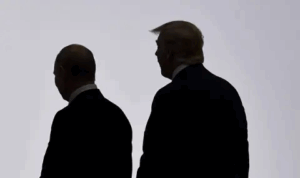
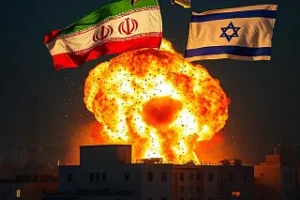
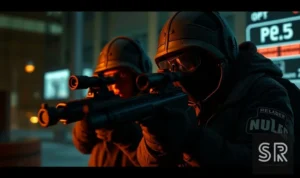
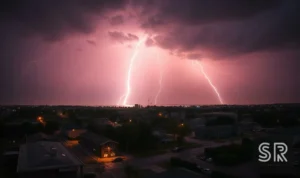
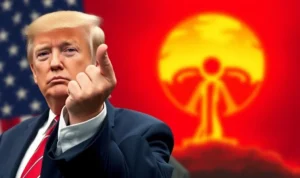
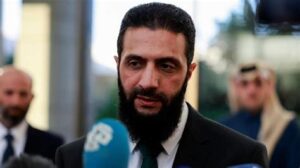

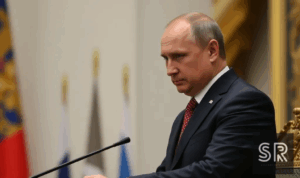
Post Comment